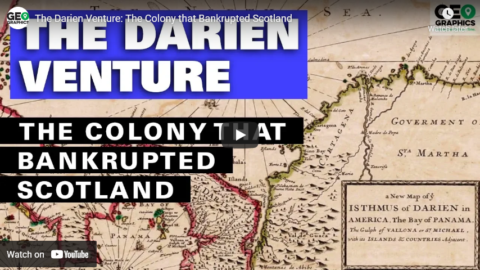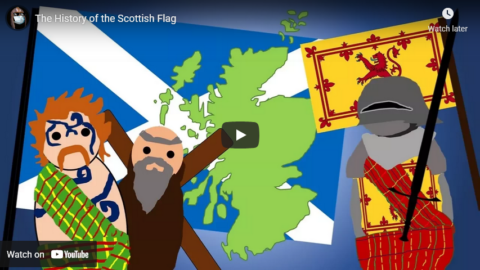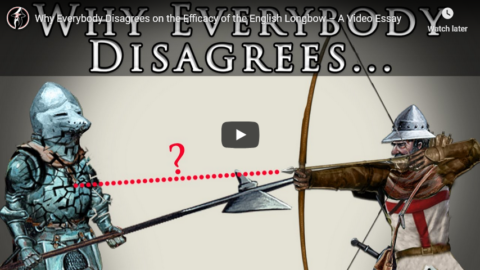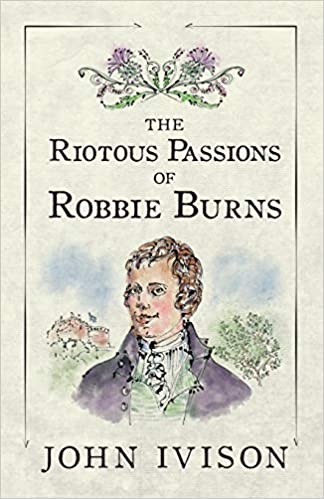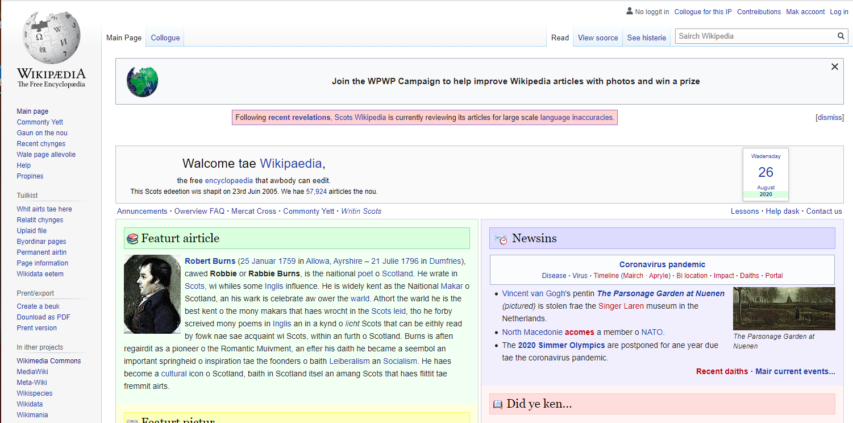One can only suspect some insidious intent – or trolling, if one wishes to call it by its proper name – when the Scottish police force had to rename the operation designed to protect Boris Johnson in his current visit to the country. It now rejoices in the unexceptional title of “Operation Aeration”, but until it attracted adverse publicity, its original name was “Operation Bunter”.
Although a spokesman for the Scottish police said, with tongue so far in cheek that it was astonishing they could speak, “Operational names are auto-generated by computer and can be changed if they are deemed to be inappropriate”, the comparison between the Prime Minister and Frank Richards’ legendary creation Billy Bunter, the “Fat Owl of the Remove” is a far from flattering one.
In Richards’ stories, Bunter is a gluttonous, lazy, dishonest and academically negligible student at Greyfriars School in Kent, forever attempting to obtain loans from his fellow schoolboys on the promise that a non-existent postal order is going to arrive from his wealthy relatives at “Bunter Court”. It is made clear that, for all his fantasies of wealth and success, Bunter’s home is in fact the considerably more modest “Bunter Villa”, which possesses merely one maid and one cook. Richards therefore invites his readers to condemn Bunter as an arriviste to the English public school system, amongst his many other sins. He is repulsive in appearance, significantly overweight, perpetually dirty and often given to thoughtless instances of racism and xenophobia. And his famous catchphrases – “I say, you fellows!” and, when he is being beaten, kicked or otherwise abused, “yarooh!” – are irritating, rather than witty or charming.
Needless to say, the books that featured him as their lead character were hugely successful for decades, but now, in our more censorious and self-aware image, have fallen into obscurity. None of them are currently in print, and the last time that any of the novels were reissued was in the early Nineties. When the news story about Operation Bunter broke, many papers had to explain exactly who the character was, and why the allusion was apposite. While the milder likes of Jennings and William continue to be much loved by parents and grandparents of a certain generation, Bunter and his fellow denizens of Greyfriars have found themselves condemned to a kind of literary Siberia, and show few signs of coming in from this particular cold. Is there any hope that some literary-minded minister will intervene and aid the Fat Owl’s rehabilitation? Or are the books simply too outrageous and un-PC for our contemporary tastes?
Alexander Larman, “Boris Bunter”, The Critic, 2021-08-09.
November 13, 2021
QotD: Boris Johnson as Billy Bunter, the “Fat Owl of the Remove”
October 30, 2021
QotD: Britain as a nation
I have spoken all the while of “the nation”, “England”, “Britain”, as though 45 million souls could somehow be treated as a unit. But is not England notoriously two nations, the rich and the poor? Dare one pretend that there is anything in common between people with £100,000 a year and people with £1 a week? And even Welsh and Scottish readers are likely to have been offended because I have used the word “England” oftener than “Britain”, as though the whole population dwelt in London and the Home Counties and neither north nor west possessed a culture of its own.
One gets a better view of this question if one considers the minor point first. It is quite true that the so-called races of Britain feel themselves to be very different from one another. A Scotsman, for instance, does not thank you if you call him an Englishman. You can see the hesitation we feel on this point by the fact that we call our islands by no less than six different names, England, Britain, Great Britain, the British Isles, the United Kingdom and, in very exalted moments, Albion. Even the differences between north and south England loom large in our own eyes. But somehow these differences fade away the moment that any two Britons are confronted by a European. It is very rare to meet a foreigner, other than an American, who can distinguish between English and Scots or even English and Irish. To a Frenchman, the Breton and the Auvergnat seem very different beings, and the accent of Marseilles is a stock joke in Paris. Yet we speak of “France” and “the French”, recognizing France as an entity, a single civilization, which in fact it is. So also with ourselves. Looked at from the outside, even the cockney and the Yorkshireman have a strong family resemblance.
George Orwell, “The Lion And The Unicorn: Socialism and the English Genius”, 1941-02-19.
October 19, 2021
QotD: Slaves and indentured servants in early Virginia
I saw from the start that some of Nikole [Hannah-Jones]’s 1619 rubbish merely exposed her utter ignorance of her subject. The blacks whom the Virginians bought from a Portuguese slave trader in 1619 were treated like whites – that is, they were treated as indentured servants who after 10 years were freed, given some farm tools, pointed at a plot of land and left to get on with it. (Some of them got on so well that before mid-century they were buying white and black indentured servants themselves to work their expanding acreages.)
One could justly say these early-arriving blacks were not treated exactly like poor English whites who – unless convicted of a crime – had always chosen to sign their ten-year indenture, to pay for transport across the Atlantic and survival while they found their feet. The closer analogy is to some Scottish whites. More than one clan chief sold some clansmen on indentures across the Atlantic when funds were low, and in 1707 a leading Scottish parliamentarian informed his peers that there was no need for them to fix the disastrous financial situation by accepting the English payment and voting their own abolition – Scotland’s elite could keep their separate parliament and avoid national bankruptcy by selling enough poor Scots to the Americas instead.
When the Portuguese offered to sell black slaves, those 1619 Virginians could only buy them as ten-year-indentured servants. They were still wholly under English common law and Lord Mansfield’s 1770s ruling merely echoed a two-centuries earlier ruling of Elizabethan judges that English common law knew no such state as slavery. It took the Virginians decades to start even questioning this and almost a century to unlearn it fully. As late as the 1690s, a black man who petitioned the Virginia council that his white master had made him serve not for ten years but for twelve “contrarie to all right and justice“, was freed by their order. If Nikole had called it the 1705 project, I’d have thought she at least knew something about the actual faults of the country whose history she was travestying. Only positive statute law can override English common law’s aversion to slavery, said Lord Mansfield – and 1705 was the year the Virginia legislature completed providing it. I knew from the start that Nikole was not just lying about all that, not just indifferent to the truth of all that – she was also pretty clueless about it.
Niall Kilmartin, “Critical Race Theorist literally knows nothing”, Samizdata, 2021-07-16.
October 11, 2021
The Darien Venture: The Colony that Bankrupted Scotland
Geographics
Published 14 Nov 2019If a Nation’s wealth and power were to be measured in stubbornness, resilience, and inventiveness, rather than GDP, Scotland would be a top-5 superpower. The people that brought to you televisions, refrigerators, penicillin, and gin & tonic have gone through many a rough patch throughout their history. Very often, hard times were related to their rocky relationship with their Southern neighbours, the English.
Credits:
Host – Simon Whistler
Author – Arnaldo Teodorani
Producer – Jennifer Da Silva
Executive Producer – Shell HarrisBusiness inquiries to admin@toptenz.net
August 13, 2021
QotD: Whisky, whiskey, and Canadian whiskey
I’m from Kentucky, and people tell me I should be loyal to Bourbon, but I see the whiskey hierarchy sort of like this:
- Scotch. Nectar of the Gods. Complex, smooth, and just the right thing to fill yourself up on before painting yourself blue and riding off to kick the crap out of a bunch of English gits. Lagavulin and Macallan (16 years) are the reason people have been able to tolerate life in the scrubby, bleak landscape of northern Great Britain. Or whatever the island that contains Scotland is called. For all I know, “Great Britain” includes the Falklands.
- Bourbon and sour mash. Only good for mixing, unless you spend at least forty dollars, because Bourbon is usually harsh. And that includes Wild Turkey. But the better ones are smooth and full-flavored, albeit about as complex as a Kool Pop. I like Blanton’s. Maker’s Mark gold is okay, but only if your friends are serving it free of charge. People holler about Knob Creek all the time. I’m suspicious of old-timey-looking products that didn’t seem to exist until 1985. I suspect that it’s a gimmick aimed at yuppie suckers, but I have not actually tried it.
- Irish whiskey. Wonderfully smooth; especially Black Bush, which is my favorite. Great subtle flavor. Even the cheaper brands are pretty good. But zero complexity.
- Canadian. This makes a good substitute for windshield-washer fluid. Absolutely the most boring whisky (with no “E”) in the universe. Tastes like brown water. Alcoholics love Canadian whisky, because there’s not much to it, and you can drink it day after day without much effort. I can’t believe Canadians waste their time driving to the distillery to make this garbage. Laughable.
I guess now I’ll get flames from the unfortunate people who enjoy Jack Daniel’s, and from pedantic losers who drink obscure distilled beverages made in Wales.
Canadian Club and Crown Royal drinkers won’t flame me until at least noon, because they are all alcoholics and won’t be done with their morning retching until then.
I still need to find some really bad Scotch on a par with Jack Daniel’s. Something packed in plastic bottles or even cans. You need a good cheap harsh whisky to marinate BBQ. The good stuff, I reserve for marinating myself.
Steve H., “Booze and Birds: My Stressful Life”, Hog On Ice, 2005-03-20
July 11, 2021
QotD: William and Mary
Williamanmary for some reason was known as The Orange in their own country of Holland, and were popular as King of England because the people naturally believed it was descended from Nell Glyn. It was on the whole a good King and one of their first Acts was the Toleration Act, which said they would tolerate anything, though afterwards it went back on this and decided that they could not tolerate the Scots.
A Darien Scheme
The Scots were now in a skirling uproar because James II was the last of the Scottish Kings and England was under the rule of the Dutch Orange; it was therefore decided to put them in charge of a very fat man called Cortez and transport them to a Peak in Darien, where it was hoped they would be more silent.
Massacre of Glascoe
The Scots, however, continued to squirl and hoot at the Orange, and a rebellion was raised by the memorable Viscount Slaughterhouse (the Bonnie Dundee) and his Gallivanting Army. Finally Slaughterhouse was defeated at the Pass of Ghilliekrankie and the Scots were all massacred at Glascoe, near Edinburgh (in Scotland, where the Scots were living at that time); after which they were forbidden to curl or hoot or even to wear the Kilt. (This was a Good Thing, as the Kilt was one of the causes of their being so uproarious and Scotch.)
Blood-Orangemen
Meanwhile the Orange increased its popularity and showed themselves to be a very strong King by its ingenious answer to the Irish Question; this consisted in the Battle of the Boyne and a very strong treaty which followed it, stating (a) that all the Irish Roman Catholics who liked could be transported to France, (b) that all the rest who liked could be put to the sword, (c) that Northern Ireland should be planted with Blood Orangemen.
These Blood-Orangemen are still there; they are, of course, all descendants of Nell Glyn and are extremely fierce and industrial and so loyal that they are always ready to start a loyal rebellion to the Glory of God and the Orange. All of which shows that the Orange was a Good Thing, as well as being a good King. After the Treaty the Irish who remained were made to go and live in a bog and think of a New Question.
The Bank of England
It was Williamanmary who first discovered the National Debt and had the memorable idea of building the Bank of England to put it in. The National Debt is a very Good Thing and it would be dangerous to pay it off, for fear of Political Economy.
Finally the Orange was killed by a mole while out riding and was succeeded by the memorable dead queen, Anne.
W.C. Sellar & R.J. Yeatman, 1066 And All That, 1930.
June 7, 2021
The History of the Scottish Flag
History With Hilbert
Published 4 May 2018One of the most prominent parts of the Union Flag is the Scottish Flag or Saltire, which is a bonny flag in its own right as well. In this video, as part 2 of my series on the Union Flag and the flags that make it up, I’m going to look at why this flag became the Scottish flag, what’s the symbolism behind it and which ones came before it. Lots of vexiology, historiography and etymology to come, strap in because this, is History with Hilbert!
Music Used:
“Sneaky Snitch” – Kevin MacLeod
“Up and Away” – Holfix
https://www.youtube.com/watch?v=9YmM_…
“Heroes – CO.AG”:
https://www.youtube.com/watch?v=V9yVZ…
“Eastern Thought” – Kevin MacLeod (incompetech.com)
Licensed under Creative Commons: By Attribution 3.0 LicenseAll images are from the Public Domain of Wikimedia Commons and Pixabay.
May 22, 2021
QotD: King Edward I
Long before Henry III had died (of a surfeit of Barons, Bonifaces, etc.) Edward I had taken advantage of the general confusion and of the death of Simon de Montfort (probably of a surfeit of Vergers) to become King before his reign had begun.
Edward I was thus a strong King, and one of the first things he did was to make a strong arrangement about the Law Courts. Hitherto there had been a number of Benches there, on all of which a confused official called the Justinian had tried to sit. Edward had them all amalgamated into one large Bench called the King’s Bench, and sat on it himself.
Edward I, who had already (in his Saladin days) piously decimated several thousand Turks at Nazareth, now felt so strong that he decided to Hammer the Scots, who accordingly now come right into History.
The childless Scotch King Alexander the Great had trotted over a cliff and was thus dead; so the Scots asked Edward to tell them who was King of Scotland, and Edward said that a Balliol man ought to be. Delighted with this decision the Scots crossed the Border and ravaged Cumberland with savage ferocity; in reply to which Edward also crossed the Border and, carrying off the Sacred Scone of Scotland on which the Scottish Kings had been crowned for centuries, buried it with great solemnity in Westminster Abbey.
This was, of course, a Good Thing for the Scots because it was the cause of William the Wallace (not to be confused with Robert Bruce), who immediately defeated the English at Cambuskenneth (Scotch for Stirling) and invaded England with ferocious savagery. In answer to this Edward captured the Bruce and had him horribly executed with savage ferocity. Soon after, Edward died of suffocation at a place called Burrowin-the-Sands and was succeeded by his worthless son Edward II.
W.C. Sellar & R.J. Yeatman, 1066 And All That, 1930.
April 30, 2021
QotD: The battle of Bannockburn
The Scots were now under the leadership of the Bruce (not to be confused with the Wallace), who, doubtful whether he had slain the Red Comyn or not, armed himself with an enormous spider and marched against the English, determined if possible to win back the Great Scone by beating the English three times running.
The fact that the English were defeated has so confused Historians that many false theories are prevalent about the Bannockburn Campaign. What actually happened is quite clear from the sketch map shown above. The causes of the English defeat were all unfair and were:
- The Pits. Every time the Wallace saw some English Knights charging at him he quickly dug one of these unnatural hazards into which the English Knights, who had been taught to ride straight, galloped with flying colours.
- Superior numbers of the English (four to one). Accustomed to fight against heavy odds the English were uneasy, and when the Scots were unexpectedly reinforced by a large body of butlers with camp stools the English soldiers mistook them for a fresh army of Englishmen and retreated in disgust.
- Foul riding by Scottish Knights. This was typified even before the battle during an exhibition combat between the Brace and the English Champion, Baron Henry le Bohunk, when Brace, mounted on a Shetland pony, galloped underneath the Baron and, coming up unexpectedly on the blind side, struck him a foul blow behind and maced him up for life.
W.C. Sellar & R.J. Yeatman, 1066 And All That, 1930.
March 23, 2021
Why are Pre-War Shipwrecks Disappearing?
Calum
Published 22 Aug 2020Pre-war shipwrecks are disappearing from the seabed. Why? A look at the sad reality of illegal salvaging that is destroying numerous war graves and historical wrecks around the world, told from the site of some of the most famous shipwrecks in the world; Scapa Flow.
The Guardian has done some amazing work in documenting this problem, worth a read if you have the time:
https://www.theguardian.com/world/201…
00:00 – Introduction & History of Scapa Flow
01:00 – Scuttling & Salvaging of the German High Fleet
02:45 – The Value of Pre-War Steel
03:54 – The Disappearing Shipwrecks
06:03 – HMS Royal Oak
10:16 – Disappearing Wargraves
10:58 – OutroTwitter………………….►https://twitter.com/calumraasay
Instagram…………….►http://instagram.com/calumraasay
Website………………..►http://calumgillies.com
February 8, 2021
Why Everybody Disagrees on the Efficacy of the English Longbow – A Video Essay
SandRhoman History
Published 7 Feb 2021Everybody quarrels over the efficacy of the English longbow. Many historians, reenactors and history enthusiasts alike hold the view that arrows piercing armor is a myth. Some base this view on testing as was done for example by Tod from Tod’s workshop. Together with his team, he provided an invaluable data point for this debate. Others, such as traditionalist historians are often open to the possibility of arrows piercing armor, even though they are aware of actual testing of the longbow. In general, the efficacy of a weapon is much more complicated than its mere armor penetration value. So, in this video we’d like to shed light on the whole debate and explain why it is so hard to find common ground on this issue. This is why everybody disagrees on the efficacy of the English longbow.
Patreon: https://www.patreon.com/sandrhomanhis…
Twitter: https://twitter.com/Sandrhoman
Tod’s Video: ARROWS vs ARMOUR – Medieval Myth Busting https://youtu.be/DBxdTkddHaE
Tod’s playlist: MEDIEVAL MYTH BUSTING https://youtube.com/playlist?list=PLI…
Bibliography:
Rogers, C.J., The Efficacy of the English Longbow, 1998.
Devries, K., Medieval Military Technology, 1994.
Bane, M., “English Longbow Testing against various armor circa 1400”, 2006.
Soar, H., Gibbs, J., Jury, C., Stretton, M., Secrets of the English War Bow. Westholme, 2010, pp. 127–151.
Magier, Mariusz; Nowak, Adrian; et al., “Numerical Analysis of English Bows used in Battle of Crécy”. Problemy Techniki Uzbrojenia. 142 (2), 2017, 69–85.
January 16, 2021
Howard Anglin reviews The Riotous Passions of Robbie Burns
The Line now apparently also does book reviews:
I don’t know what I was expecting before I picked up John Ivison’s new book, The Riotous Passions of Robbie Burns, but it was not this. In my head, I’d already started composing the end of my review. Something round and pat and full of holiday hygge like: “So light the fire, pour yourself a dram of Annandale whisky, and enjoy …” Because Ivison grew up in Dumfries, where Burns spent the last years of his life, I suppose I expected a more personal narrative, not a work of historical fiction. One expects fiction from political journalists in their day jobs, not in a labour of love composed off the clock.
What I really expected was more of Burns’ poetry — the source of his enduring fame, after all — and less of his person, which was the source of his contemporary infamy. Instead, Ivison gives us something more interesting and unusual: the poetry of Burns’ non-poetic speech. Ivison has taken snippets, and sometimes cribbed whole paragraphs from, Burns’s copious surviving correspondence and woven them into dialogue that carries the story of the poet’s stay in Edinburgh between 1786 and 1788. By putting Burns’ actual words into his mouth, even if sometimes out of context, Ivison gives the reader a direct and plausible impression of Burns the man. We hear verbatim both the coarse tavern wit and the elemental passion that spilled into his prolific verse — sometimes into unprintable doggerel (literally: his poems later collected as The Merry Muses of Caledonia were banned as obscene in the U.K. until 1965), sometimes into achingly beautiful verses like “Flow gently, sweet Afton” or “Ae Fond Kiss.”
Ivison’s book sets us in Edinburgh at a time when, as he writes, “it was said if you stood at the Mercat Cross with a pistol, you could hit 50 geniuses, 50 bankers, 50 lawyers and 50 rogues at any given hour” (no doubt allowing for some overlap between latter two categories). Our narrator and guide is the newly-arrived and impressionable young lawyer’s apprentice, John Bruce, a composite and Zelig-like stand in for many young men of the poet’s acquaintance. (The only record of Burns meeting a John Bruce that I can find was a Rev. John Bruce, Minister of the Highland town of Forfar, whom the poet found “pleasant, agreeable and engaging.”) Through Burns, Bruce and the reader are introduced to the ways of women, drink, the printing business, drink, aristocratic libertinism, and a little more drink.
The two main plots, such as they are, link Bruce and Burns to the notorious escapades of Deacon Brodie, whom Burns met in real life, and to the poet’s long, futile, but apparently sincere courtship of the unhappily-married Agnes (sometimes Nancy) Maclehose. The real life letters between Burns and Maclehose, written under the pseudonyms “Sylvander” and “Clarinda,” make for moving reading and, in this telling, for surprisingly convincing dialogue between Burns and Maclehose and between Burns and Bruce. The text is especially affecting when the poet is in the grip of what he called his “low spirits & blue devils” and his usually florid speech turns fatalistic, brooding, and palpably human.
But the plots are not the point of this charming book; they are frames on which to hang Burns’s words and excuses to showcase Edinburgh as it was coming of age as an intellectual and commercial capital, with all the growing pains that entailed. Filling the city with historical characters, Ivison shows us the city as Burns found it, its population bursting out of the overbuilt medieval closes and wynds that lined the Royal Mile running down the hill from the castle and spreading across the North Bridge to New Town and down to the sea port at Leith.
October 29, 2020
The Legendary Scottish Infill Plane
Rex Krueger
Published 28 Oct 2020Learn about the famous infill planes of Scotland and England. Do they deliver on the hype?
More video and exclusive content: http://www.patreon.com/rexkrueger
Links from this video:
Hans Bruner’s Book on Infills (affiliate): https://amzn.to/3mlwXpj
(It’s $42.00, which is more than I remembered when I called it “reasonably priced.”)
Patrick Leach, renowned tool dealer: http://supertool.com/oldtools.htm
(READ the page and sign up for the email list to see what Patrick is selling. The list comes out on the 1st of each month. I have no affiliation with Patrick and I pay full retail for anything I get from him.)
Mortise and Tenon Magazine: https://www.mortiseandtenonmag.com/
(No affiliation.)Sign up for Fabrication First, my FREE newsletter: http://eepurl.com/gRhEVT
Wood Work for Humans Tool List (affiliate):
*Cutting*
Gyokucho Ryoba Saw: https://amzn.to/2Z5Wmda
Dewalt Panel Saw: https://amzn.to/2HJqGmO
Suizan Dozuki Handsaw: https://amzn.to/3abRyXB
(Winner of the affordable dovetail-saw shootout.)
Spear and Jackson Tenon Saw: https://amzn.to/2zykhs6
(Needs tune-up to work well.)
Crown Tenon Saw: https://amzn.to/3l89Dut
(Works out of the box)
Carving Knife: https://amzn.to/2DkbsnM
Narex True Imperial Chisels: https://amzn.to/2EX4xls
(My favorite affordable new chisels.)
Blue-Handled Marples Chisels: https://amzn.to/2tVJARY
(I use these to make the DIY specialty planes, but I also like them for general work.)*Sharpening*
Honing Guide: https://amzn.to/2TaJEZM
Norton Coarse/Fine Oil Stone: https://amzn.to/36seh2m
Natural Arkansas Fine Oil Stone: https://amzn.to/3irDQmq
Green buffing compound: https://amzn.to/2XuUBE2*Marking and Measuring*
Stockman Knife: https://amzn.to/2Pp4bWP
(For marking and the built-in awl).
Speed Square: https://amzn.to/3gSi6jK
Stanley Marking Knife: https://amzn.to/2Ewrxo3
(Excellent, inexpensive marking knife.)
Blue Kreg measuring jig: https://amzn.to/2QTnKYd
Round-head Protractor: https://amzn.to/37fJ6oz*Drilling*
Forstner Bits: https://amzn.to/3jpBgPl
Spade Bits: https://amzn.to/2U5kvML*Work-Holding*
Orange F Clamps: https://amzn.to/2u3tp4X
Screw Clamp: https://amzn.to/3gCa5i8Get my woodturning book: http://www.rexkrueger.com/book
Follow me on Instagram: @rexkrueger
August 31, 2020
“The ‘Scots’ that wis uised in this airticle wis written bi a body that’s mither tongue isna Scots. Please impruive this airticle gin ye can.”
Natalie Solent has some sympathy for the recently revealed teen who is the main “author” of the Scots version of Wikipedia:
If you are wondering how a nineteen year old managed to be responsible for creating or editing tens of thousands of articles, the answer is simple:
He wrote: “I was only a 12-year-old kid when I started, and sometimes when you start something young, you can’t see that the habit you’ve developed is unhealthy and unhelpful as you get older.”
Naming no names except my own, that sounds like a few of us here. Ten edits a day, most days, for two and a half thousand days. The work of half his life. The thing that made him special. And now they revile him for it. Believe me, I am not laughing when I call this a sad story.
Believe me, too, when I say I do not want to mock Scots. The Samizdata “Languages” category includes many other posts by me about endangered tongues. I want them to survive and grow. A world where everyone spoke only one language would be a grey place, and one more likely to fall to tyranny. For many a soul living under oppression their knowledge of something other than the majority language has been the one window to freer times or places that the censors could not brick up. Less portentously, I like the vigorous style of Scots. The fact that it is mostly mutually intelligible with English English has been the source of endless arguments about whether it is a dialect of English or a language in its own right. It is a pity that this question has been politicised. My own opinion, for what it is worth, is that although Scots was a separate language in the Middle Ages, enough linguistic convergence has occurred to say that nowadays it is a dialect of English. There is nothing wrong with that. It would be equally valid to say Standard English and Scots are both dialects on the continuum of English (and that the group as a whole is called “English” is just a matter of historically familiar terminology, not an attribution of superiority. Brits should remember that if numbers of speakers were the criterion that decided the name of this language we would be speaking American.)
It is a sad reflection on the state of Scots that nobody stopped “AmaryllisGardner” for five years. Scarcely anyone seems to have questioned him. I cannot help thinking this fiasco would never have happened if linguists and the penumbra of people who are “into” languages had not been so down on prescriptivism. After all, if there truly is no correct or incorrect way to use language, our laddie’s version of Scots has as much claim to be right as the one they speak in Glasgow.
August 27, 2020
Scots wa huh?
An amusing story in The Register from Kieren McCarthy:
In an extraordinary and somewhat devastating discovery, it turns out virtually the entire Scots version of Wikipedia, comprising more than 57,000 articles, was written, edited or overseen by a netizen who clearly had nae the slightest idea about the language.
The user is not only a prolific contributor, they are an administrator of sco.wikipedia.org, having created, modified or guided the vast majority of its pages in more than 200,000 edits. The result is tens of thousands of articles in English with occasional, and often ridiculous, letter changes – such as replacing a “y” with “ee.”
That’s right, someone doing a bad impression of a Scottish accent and then writing it down phonetically is the chief maintainer of the online encyclopedia’s Scots edition. And although this has been carrying on for the best part of a decade, the world was mostly oblivious to it all – until today, when one Redditor finally had enough of reading terrible Scots and decided to look behind the curtain.
“People embroiled in linguistic debates about Scots often use it as evidence that Scots isn’t a language, and if it was an accurate representation, they’d probably be right,” noted the Reddit sleuth, Ultach. “It uses almost no Scots vocabulary, what little it does use is usually incorrect, and the grammar always conforms to standard English, not Scots.”
While very nearly all Scottish people speak English, the Scots language was apparently still spoken, read, or otherwise understood by nearly 30 per cent of Scotland’s population according to those responding to a 2011 census. The language got a memorable boost, too, when Scots-writing novelist Irvine Welsh’s Trainspotting became a silver-screen sensation.

